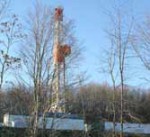- Share on Facebook
- Like
- Digg
- Tumblr
- VKontakte
- Buffer
- Love This
- Odnoklassniki
- Meneame
- Blogger
- Amazon
- Yahoo Mail
- Gmail
- AOL
- Newsvine
- HackerNews
- Evernote
- MySpace
- Mail.ru
- Viadeo
- Line
- Comments
- SMS
- Viber
- Telegram
- Subscribe
- Skype
- Facebook Messenger
- Kakao
- LiveJournal
- Yammer
- Edgar
- Fintel
- Mix
- Instapaper
- Copy Link
- Bluesky
As you can see from our bill tracking list, most of the bills we’ve been following did not make Wednesday’s deadline for “crossing over” from their House of origin; and in the majority of cases, this is a good thing. Below are a few words about some of the ones that are still alive.
We’ve been very much opposed to S.B. 565 which would allow drillers to build roads and well pads with only a stormwater permit. While the bill is still technically “alive,” reliable sources say say that it will go no further because of an understanding reached between the industry and the DEP. Good news!
S.B. 619 is the “regulatory reform” bill. If it passes, every rule promulgated by an agency must be accompanied by an economic impact statement. Even worse, all rules will expire after five years. Rulemaking is already an arduous process, and this will make it many times worse. To say that it’s like pouring cold molasses into the cogs of government is an understatement. So even though the health impact studies that we wanted were amended into it last week, this bill needs to die; the price is just too high. Currently it’s waiting to be taken up by House Judiciary.
Remember that S.B. 625 provides that, when public water utilities involve the public in developing their source water protection plans, they are allowed to share information that is already in the public domain. It passed out of the Senate this week, and it too is waiting to be taken up by House Judiciary. WV Rivers’ fact sheet is here.
S.B. 691 makes a couple of important changes that are essential to the DEP’s ability to develop a state implementation plan under the EPA’s Clean Power Plan. It passed out of the Senate this week, and now sits in House Judiciary.
H.B. 4053 is the DEP rules bundle, and it’s sitting in Senate Judiciary.
H.B. 4435 would allow utilities to obtain “expedited rate recovery” for upgrades to boilers. The normal practice is that such upgrades must be “used and useful” before the costs can be incorporated into electric rates paid by consumers. This bill would expand the types of costs that could be recovered, allow rate recovery with just an “application” (avoiding a lot of the evidentiary hearings and opportunities for ratepayers to challenge those costs), and allow utilities to recover costs for merely proposing an upgrade, even if nothing is ever actually built. This is similar to the “incentive rates” that were used to promote some large transmission lines (TrAIL, PATH). Ratepayers ended up paying costs that had little to do with actual transmission construction. We oppose the bill because it is just another excuse by out-of-state corporations to gouge local ratepayers. (Thanks to Jim Kotcon for this summary!) It’s waiting to be taken up by the Senate Energy, Industry and Mining Committee.





